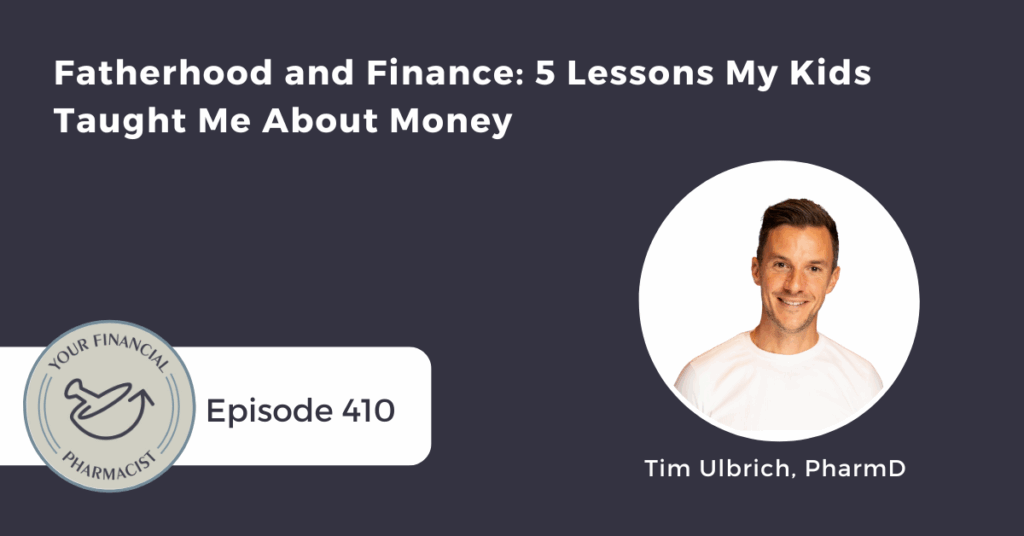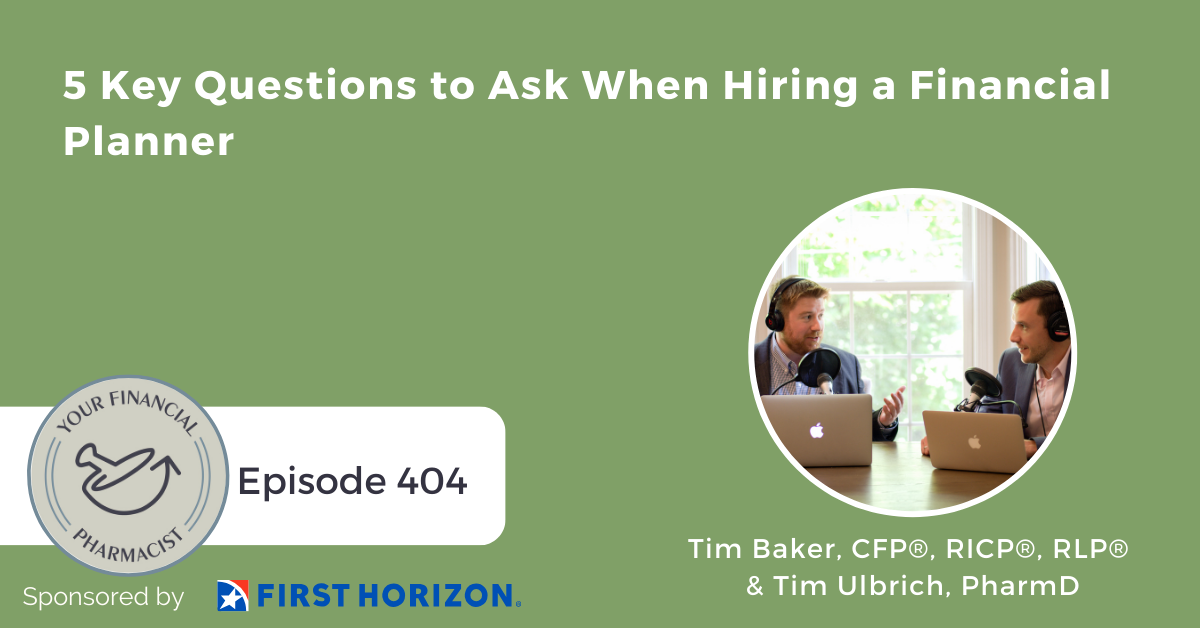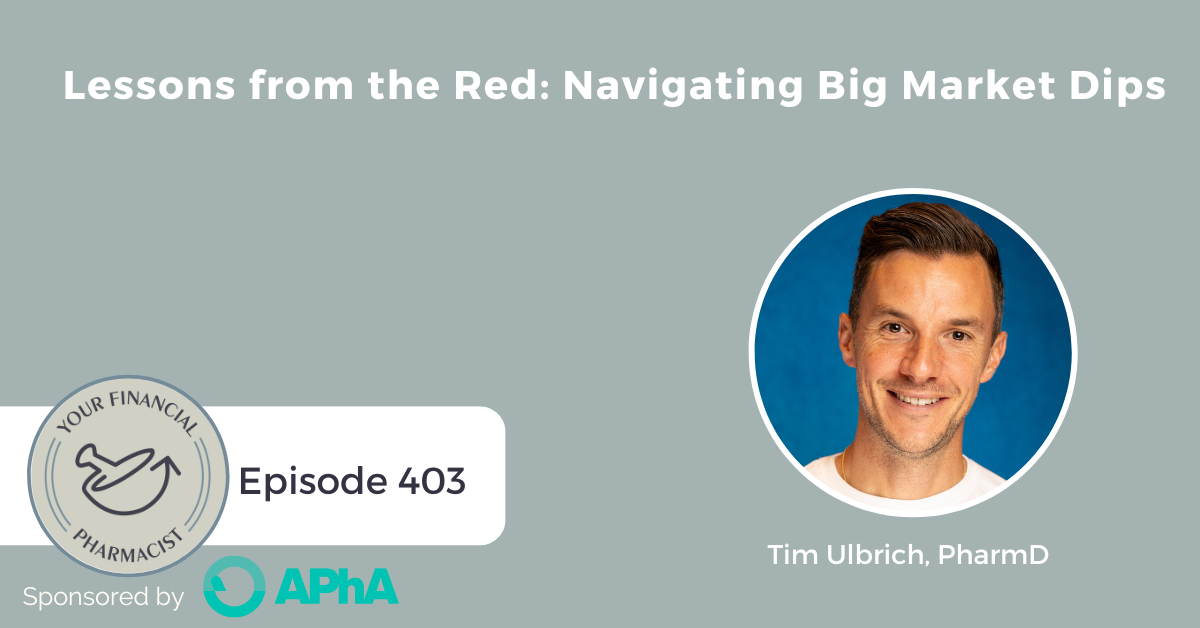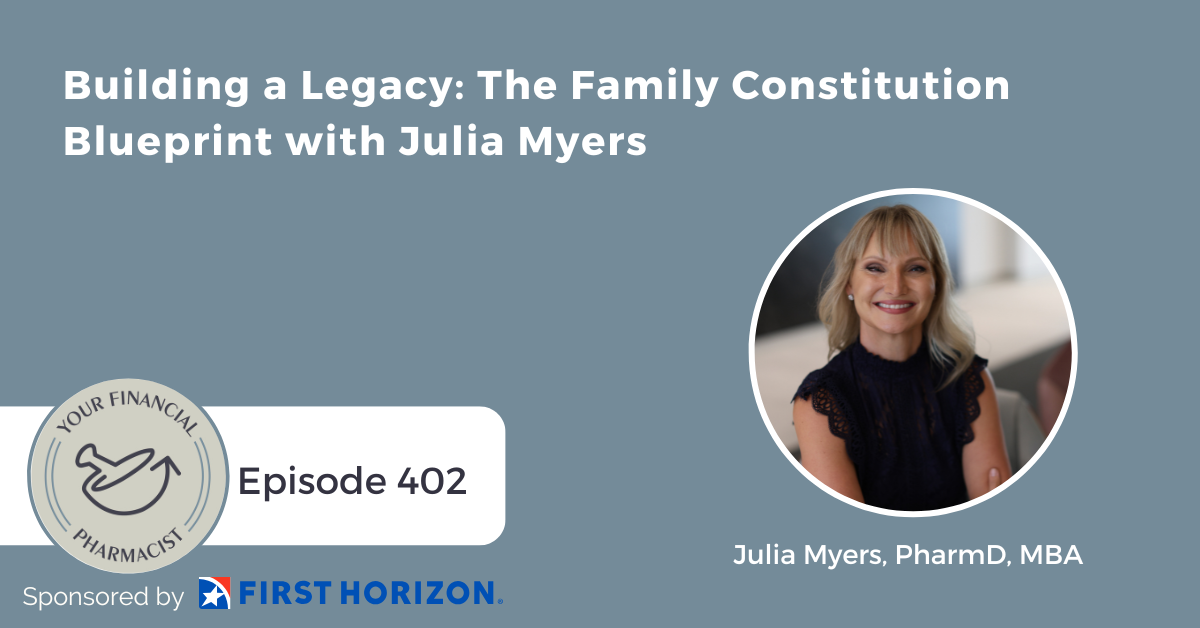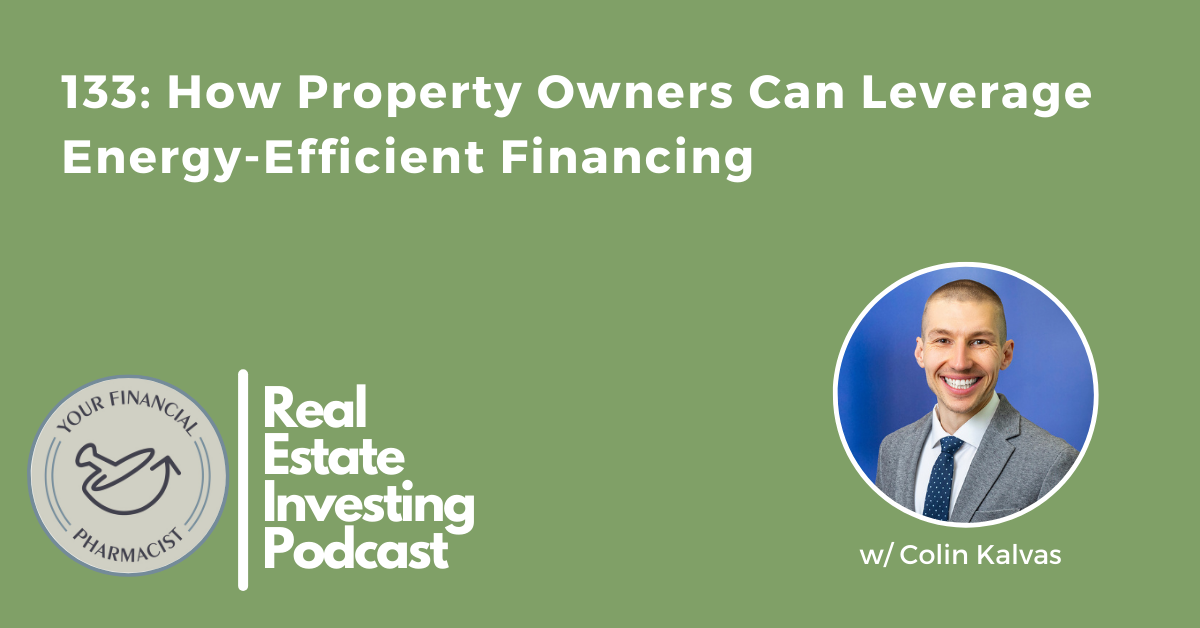In this special Father’s Day episode, Tim Ulbrich shares five unexpected and powerful money lessons he’s learned from raising four boys.
Episode Summary
YFP Co-Founder & CEO, Tim Ulbrich, PharmD, reflects on the unexpected and powerful financial lessons he’s learned from raising four boys. From a simple conversation at the concession stand to more profound reflections on values and priorities, Tim unpacks five meaningful insights that go far beyond spreadsheets and savings accounts.
Whether you’re a parent, planning to become one, or simply exploring how life experiences shape your approach to money, this episode offers a personal and practical look at the intersection of fatherhood and finances. Tim shares how being a parent has challenged and refined his money mindset, helping him see financial planning through a more intentional and values-based lens.
This episode is perfect for listeners interested in financial planning for dads, teaching kids about money, and embracing intentional living with money. You’ll walk away with not just financial tips, but also encouragement to reflect on the deeper “why” behind your money decisions.
Key Points from the Episode
- 00:00 Introduction & Father’s Day Message
- 01:00 Why This Episode is for All Parents
- 02:00 Lesson 1: Teaching Kids About Money
- 05:30 Everyday Opportunities for Money Lessons
- 06:00 Lesson 2: Investing in Experiences
- 08:00 Creating Lasting Memories and Experience Dividends
- 09:00 Lesson 3: The Rocking Chair Vision
- 10:30 Visualizing Retirement and Long-Term Planning
- 12:00 Lesson 4: Over-Saving for Tomorrow
- 13:30 Finding Balance Between Today and the Future
- 14:30 Lesson 5: The Link Between Money and Happiness
- 15:00 The Five Happy Money Principles
- 16:00 Final Reflections & Encouragement for Parents
Episode Highlights
“ These opportunities to teach our kids about money, they don’t have to be in a textbook necessarily. They are all around us every single day, and I hope that we can challenge one another to take advantage of them.” – Tim Ulbrich [5:23]
”My partner Tim Baker, on a recent episode of the podcast, he said, ‘Hey, if we’re always preparing for tomorrow, what is the point? If we’re never thinking about today and living in the moment today, and we’re always focused on the future, what’s the point?” – Tim Ulbrich [11:52]
“ My question for you and your family is, what are those investments that are creating the experience dividend? What are those things that you’re gonna look back on and say, ‘Hey, that was a great return on investment of the time and money that we made?’” – Tim Ulbrich [8:36]
“ The idea is that you imagine your later life could be 70, 75, maybe 80 years old. You’re sitting in a rocking chair and you’re looking backwards. I like to think about it as if I’m looking backwards, sitting on the porch of my house, where our family, my kids grew up, and we’re looking back on life essentially playing a replay of the last 30 or 40 or more years and what happened inside of that home and the experiences that came as a part of our family. And what I like to think about is what, what are those experience, what are those memories that bring feelings of gratitude and joy? What are some of the moments, the relationships, the decisions that were made along the way?” – Tim Ulbrich [8:46]
Mentioned in Today’s Episode
- YFP 363: A Conversation with My Dad: Lessons on Entrepreneurs, Fatherhood, and Finance
- YFP 402: Building a Legacy: The Family Constitution Blueprint with Julia Myers
- Die With Zero: Getting All You Can From Your Money and Your Life by Bill Perkins
- Happy Money: The Science of Happier Spending by Elizabeth Dunn and Michael Norton
Episode Transcript
[00:00:00] Hey everybody. Tim Ulbrich here and welcome to this week’s episode of the YFP podcast where we strive to inspire and encourage you on your path towards achieving financial freedom. I wanna wish a happy Father’s Day to all the dads that are out there, whether you’re in the thick of it, with the toddler chaos, perhaps you’re in the teenage years or maybe a little bit of both.
Uh, in my family, I’ve got four boys from. 13 down to five. So we’re in a couple different seasons at the same time. Or maybe you’re a more seasoned parent that is now raising adult children that might even be raising families of their own. Regardless of what stage of fatherhood that you’re in this episode is for you.
And to be frank, it’s, it’s for all parents. Out there, not just the dads, but as we look at this really important intersection of parenting and finance. Last year, I had the chance to celebrate Father’s Day by having my own dad, Tom Ulbrich on the show. That was a real treat, one of my favorite episodes of all time.
We’ll link to that episode in the show notes. If you didn’t get a chance to catch it. Last year we talked about. Fatherhood [00:01:00] and entrepreneurship. We talked about family and finances, a really special conversation that my dad and I had this year. I’m taking a different angle. I’m gonna reflect on five different areas, five key areas where my boys have really taught me some important lessons.
About finance, not just the monetary lessons that we talk about so often on the show, but also when we look at more of the qualitative side of the financial plan. So I hope you enjoy this episode. I had a blast putting it together. It’s short, it’s sweet. But we’re gonna reflect on some really important parts of the financial plan and how parenting.
Can provide us with opportunities not only to be able to train up the next generation in a way that we want, but also to help inform our view on money and finances. So let’s jump into the first of five different areas, and number one is teaching our kids about money and how opportunities are all around us to do it if we’re able to pay attention and to [00:02:00] see those opportunities.
You know, one of the. Experiences that comes to mind is not too long ago, one of my boys, Levi, uh, currently he’s 10, 10 years old. We were out at one of our many nights where we spent out at the soccer field and we were standing in line at the concessions. It seems like they can’t leave home for an hour, if at most, if there’s concessions available, right?
We gotta have concessions. And I remember him asking me one of those questions that just sticks with you, and he asked me, dad, are, are we rich? And I remember just answering without a whole lot of thought. No, Levi we’re not rich. And so naturally he then asked, well, well dad, are we poor? And I said, no, Levi, we’re, we’re not poor.
And that was the end of the conversation, right? It was the end of a long day. I was tired, kind of mentally checked out. There was a real opportunity in front of me to ask some probing follow up questions like, Levi, what? Why are you curious? Or what do you mean by rich? What do you mean by poor? Where did those ideas even come from?
Right? The [00:03:00] vocabulary that we use around money. What does that mean to him? And instead of engaging in that conversation and really trying to understand where he was coming from, and I think probably at a point that was clearly a formative opportunity. You know, I, I missed that opportunity. Now, thankfully there’s been many others since then, and that’s just one example.
But these opportunities to teach our kids about money are all around us. Right. I, I have some very solidified memories from when I was a child where my parents role modeled the effective management of finances. I remember the conversations around the dinner table. I. But more importantly, what I remember were some of the actions, like when our, our allowance was split into different categories of savings, spending and giving.
I remember my mom back in the day when you used to deposit, uh, money physically into the bank and you actually took your paycheck to withdraw money and, and then taking those dollars and putting them [00:04:00] into individual envelopes for different categories of spending. These opportunities are all around us and whether we’re saying.
These things, whether it’s with words or with our actions or behaviors. Our kids, as you all know, are incredibly observant, right? Very observant of these memories, these opportunities that are in front of us, and I can think of many more where there might have been good conversations or missed opportunities.
One one that comes to mind is when my oldest, Sam. Who’s now 13, about to be 14. He was five at the ti time. We were standing at the, the checkout, uh, station at, at the grocery store. I pulled out my credit card. I, I think we were just buying one or two items. I can’t remember the specifics. And he looked at me, he said, dad, so you, you swipe your card when you need something.
That’s what you do, right? You go to the grocery store, you swipe your card, you get what you want. And you know, as I was thinking about it from his viewpoint, he’s never really seen, or at least hasn’t seen very much the physical exchange of dollars. Right? And so there were some [00:05:00] conversations to be had there about, well, how does credit work?
How did debit cards work? Obviously at five, I didn’t have a deep conversation about that, but we would certainly do that over the years. I think about my, my son Everett, who just loves this topic of personal finance, and he often will ask me about inflation and we’ll talk about supply and demand, and sometimes this will come on the heels of hearing a news story in the car or conversation that we’re having.
These opportunities to teach our kids about money. They don’t have to be in a textbook necessarily. They are all around us every single day, and I hope that we can challenge one another to take advantage of them. The second thing that I want to talk about is. Investing in experiences. One of the books I’ve talked about before on this show is Die With Zero by Bill Perkins, and he talks about this concept as the experience dividend, the experience dividend, what he refers to as the return on investment that we get from experiences.
And here’s the key, not just in the [00:06:00] moment, but in the lasting memories that they create. Right. Ramit said, he talks about this concept in his book, I Will Teach You to Be Rich. He calls these money dials. Money Dials are the things that can potentially lead to the experience dividend, the things that we really value and treasure and that have meaning to us.
And it’s not just the dollars that we’re spending in the moment and what comes from that, but also the, the tail effect of that over time. Now when I look back to. Some of the experiences in our own family. One of the, the key things that comes out that has created many experience dividends is we really value attending professional sporting events.
We love it. Our, our family loves to play sports. We like competition. We like just appreciating the play at that level. Something we all enjoy doing together. And some of the fondest memories I have is sitting in the arena. With the six of us watching a professional soccer game, or a [00:07:00] professional baseball game, or a football game, whatever it might be, and we’ve got some cool options here in Columbus, thankfully.
And there’s some bucket list items that as they get older, right? It start started off as things that could be relatively inexpensive. Thankfully here in Columbus, we can go to the Ohio State University as great sporting events, sometimes free or low cost. And as they get older, right, our, their curiosity and interests start to grow naturally.
We’ve got some exciting bucket list opportunities coming up in terms of the World Cup next summer, the Olympics, in a couple years now. I have a dream to sit just courtside in the NBA game, just once, just once to experience that. Right, and so that, that’s what Bill Perkins is talking about is what are the things for you and your family that we are prioritizing the spending, such that it creates an experience dividend, and maybe it’s experiences, it could be giving, it could be other parts of the financial plan.
Obviously travel is a common experience. And this is something that is a family I talked with with Julia Meyers about this recently on the podcast. We’ll link to that episode in the show notes as well [00:08:00] about having clarity as a family around what she calls the constitution, the framework, the blueprint, the vision for what is of significance and value to you and your fin family so that you can essentially use that as a filter through which you’re spending your time and your money.
So those are examples in our family. My question for you is for, for you and your family, what are those investments that are creating the experience dividend? What are those things that you’re gonna look back on and say, Hey, that was a great return on investment of the time and money that we made? The next area I want to talk about is what I call a rocking chair vision.
A rocking chair vision. It’s something I think about a lot where. The idea is that you imagine your later life could be 70, 75, maybe 80 years old. You’re sitting in a rocking chair and you’re looking backwards. I like to think about it as if I’m looking backwards, sitting on the porch of my [00:09:00] house, where our family, my kids grew up and we’re looking back on life essentially playing.
A replay of the last 30 or 40 or more years and what happened inside of that home and the experiences that came as a part of our family. And what I like to think about is what, what are those experience, what are those memories that bring feelings of gratitude and joy? What are some of the, the moments, the relationships, the decisions that were made along the way?
And then if you’re going through that vision exercise and, and something comes up, maybe it’s feelings of gratitude and joy and you just wanna sit in that more, maybe it’s feelings of, Hey, my kids are getting older. That window of time is closing. Or perhaps they’re now adult children and there’s opportunities, uh, with your children or grandchildren.
Right. Is there any type of shift or change that we need to make as we project ourselves into the future? Looking back, this is a really powerful concept. Right? And, and there’s actually some really interesting research on this from a [00:10:00] financial planning standpoint where especially for those where retirement may be off in the horizon.
Whether it’s 10 years away, 15 years away, 20 years away or more, it’s, it’s hard sometimes to plan for retirement because it feels so far off into the future. Right? It’s kind of a nebulous thing. What will life look like at that point? And we have immediate, I. Needs and opportunities that are right in front of us, right?
We can feel those, we can see those not necessarily the case when we look at things far off in the future. And so the exercise I’m re I’m referring to in terms of some of the research with financial planning is to actually visualize yourself. And there’s tools online that can do this where you take your, your picture of your current self, I’m sure you’ve seen these on social media.
And then it will project what you’re going to look like at whatever age you choose to put into, uh, the tool. And that’s helpful because that becomes more tangible. When I can see old Gray Tim, I can start to realize like, Hey, this retirement thing is very real, will be very real someday. And that’s the concept here with the rocking chair vision [00:11:00] is that we’re all going to look back at some point if we’re blessed with the opportunity to live long enough and we’re look, we’re gonna look back hopefully with minimal regrets, but we’re gonna look back on things that, Hey, we did that really well.
And maybe there’s some opportunities of things that we would’ve done differently, and how can we put ourselves in that situation, in that viewpoint now to be able to make some adjustments, and obviously that’s gonna connect back to the financial plan in terms of how we’re spending our time and how we’re spending our money.
The next area that I want to talk about is this concept of over saving for tomorrow at the expense of today. Over saving for tomorrow at the expense of day. I’m specifically talking to those that are listening that are those type A over savers, right? There is an opportunity Fatherhood and Finance: 5 Lessons My Kids Taught Me About Money cost of saving too much, just like there’s an opportunity cost of saving.
Too little, too little. My partner Tim Baker, a recent episode of the podcast, he said, Hey, if we’re [00:12:00] always preparing for tomorrow, if we’re always preparing for tomorrow, what is the point? If we’re never thinking about today and living in the moment today, and we’re always focused on the future, what’s the point?
Right? And the idea of that is we have to strike a balance. Yeah, of course we wanna be prepared for retirement. We don’t wanna be caught in a position of being unprepared of retirement. That wouldn’t be wise. But we also don’t wanna over save at the expense of today and, and I’ve talked with many pharmacists that may in fact be over saving.
Out of whatever reason, could be out of fear, could be out of feelings of safety or security, that they get through that saving. But that does also potentially have an opportunity cost that we too often don’t consider. And that’s my challenge here for, especially for those over savers to consider. So again, when you look back someday, right, and we look at our retirement account, whether you have 3 million, three and a half million, 4 million or 5 million, at some point we’re gonna be okay.
Yeah, [00:13:00] we’re gonna be okay. And are we appropriately prioritize prioritizing today as well as looking towards the future? That’s my challenge for you to consider that balance and how that balance is playing out in your own financial plan. And then finally, the, the fifth and last reflection here is looking at the, the, the value of money and the link.
Between how we use our money and happiness and how ultimately we are role modeling and teaching this to our kids. Right. One of the, my favorite books, I think I’ve referenced it a couple times on the podcast before, is called Happy Money. I’ll link to it in the show notes. It’s a, a book that highlights the research.
On the connection between happy, happiness and money, right? This is the question that’s been asked over and over and over again is that does having more money ultimately make somebody happier? And I think the research now is pretty clear that money in and of itself, not so much. Obviously we, we want that money to be able to provide a basic level of needs and care for ourselves now and in the [00:14:00] future.
But what that research shows us is, in fact there are five areas. Where there is a strong connection between money and happiness. Remember, money is a tool, right? Money has value because we say it has value, but how we are able to utilize that money might be able to bridge that connection between money and happiness for us.
Now, what are those five areas? Those five areas are some things we’ve talked about already. Investing in experience, right? That’s experience dividend that we talked about. Second one is buying back time. Being able to have flexibility options, something I hear on repeat from pharmacists. The third thing is, is the practice of giving and the feelings that come from being able to help others through generosity.
The fourth thing is delayed gratification and knowing that, hey, if I can have that discipline, not at the expense of everything today, but if I can have that discipline to wait for tomorrow, there’s a strong connection to happiness there as well. And then finally, the fifth thing. Is that we’re able to enjoy some of it today to treat ourselves, uh, in, in a certain amount of moderation, [00:15:00] right?
That we are also living that rich life today that we talked about. So those are the five things. That are the connections that were made in the book. Happy Money between Happiness and Money. Number one, invest in experiences. Number two, buying back our time. Number three, the practice of giving and generosity of both time and money.
Number four, delayed gratification. And number five is treating ourselves in moderation. So my challenge for you, my challenge for me is teaching our kids, yes, the important things around saving and investing and the X’s and O’s. But also teaching them some of the more qualitative aspects of the financial plan, right?
Why we’re doing what we’re doing, what’s the meaning behind money, and how can we craft a meaningful life? And how does our financial plan support that vision for a meaning life? So as we celebrate Father’s Day, let’s remember that the intersection of fatherhood and finance isn’t. About getting this right all the time, right?
It’s about [00:16:00] living with intention because we’re gonna get it wrong from time to time. We have to give ourselves some grace. I’m right there with you. It’s in the questions we answer, the conversations we engage in, the time that we give, the vision that we set for our family, and ultimately the legacy that we’re going to leave.
So to all the parents out there, keep showing up. Keep planting seeds. Keep building the rich life, not just financially, but relationally. And spiritually as well. Thanks for joining me today and from one dad to another Happy Father’s Day. Thanks so much for listening to this week’s episode of the podcast.
If you like what you heard, do us a favor and leave us a rating or review on Apple Podcasts or wherever you listen to the show, which will help other pharmacists find the podcast. An important reminder that the content in this podcast is for informational purposes only, is not intended to provide and should not be relied on for investment or any other advice.
For more information on this, you can visit your financial pharmacist.com/disclaimer. Thanks so much for listening. Have a great rest of your week.
[END]
Current Student Loan Refinance Offers
Note: Referral fees from affiliate links in this table are sent to the non-profit YFP Gives. | Bonus | Starting Rates | About | YFP Gives accepts advertising compensation from companies that appear on this site, which impacts the location and order in which brands (and/or their products) are presented, and also impacts the score that is assigned to it. Company lists on this page DO NOT imply endorsement. We do not feature all providers on the market. |
$750* Loans ≥150K = $750* ≥50K-150k = $300 | Fixed: 4.89%+ APR (with autopay) | A marketplace that compares multiple lenders that are credit unions and local banks | ||
$500* Loans ≥50K = $500 | Variable: 4.99%+ (with autopay)* Fixed: 4.96%+ (with autopay)** Read rates and terms at SplashFinancial.com | Splash is a marketplace with loans available from an exclusive network of credit unions and banks as well as U-Fi, Laurenl Road, and PenFed |
Recent Posts
[pt_view id=”f651872qnv”]

